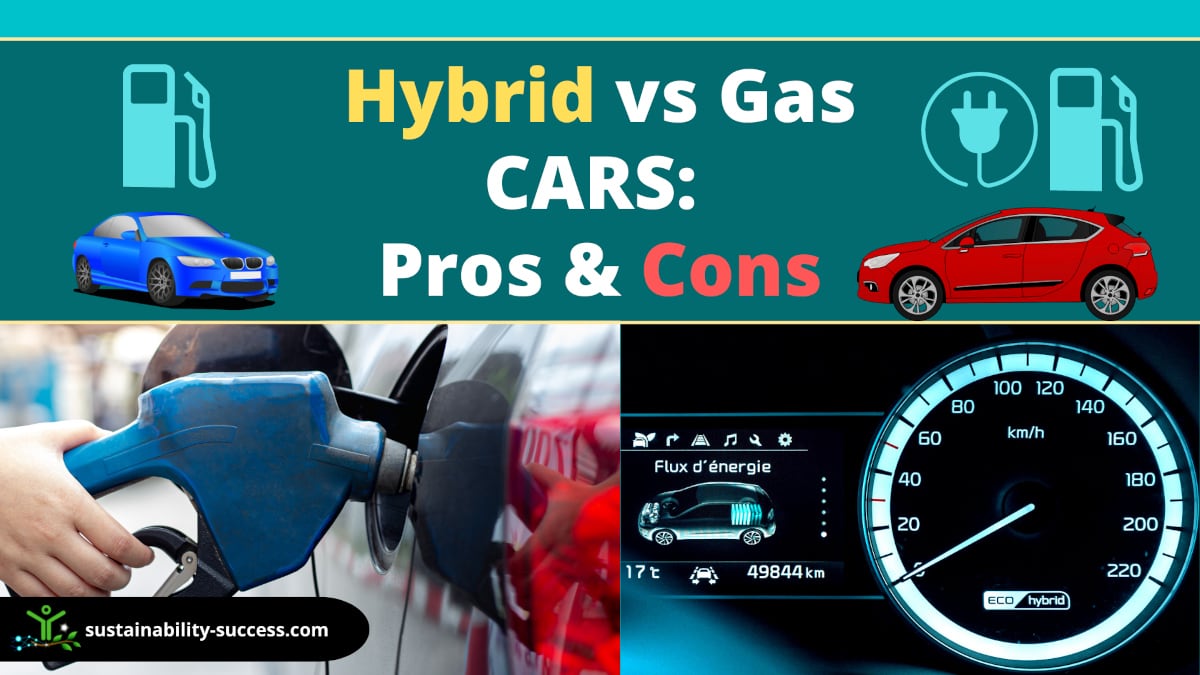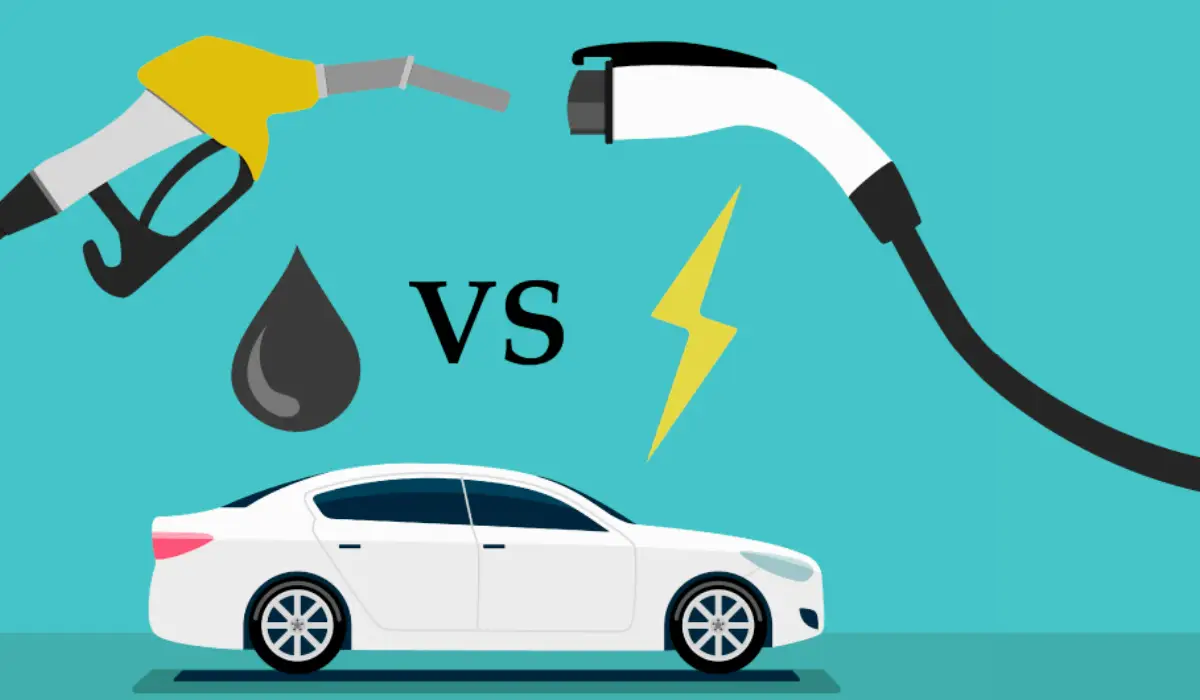
Hybrid vs. Gasoline Cars: A Comprehensive Comparison of Pros and Cons
For decades, the gasoline-powered car has reigned supreme as the dominant mode of personal transportation. However, with increasing environmental concerns, rising fuel costs, and advancements in automotive technology, hybrid cars have emerged as a viable and increasingly popular alternative. Both types of vehicles offer unique advantages and disadvantages, making the decision between them a complex one. This article provides a comprehensive comparison of hybrid and gasoline cars, outlining their pros and cons to help potential buyers make an informed choice.
Gasoline Cars: The Traditional Choice
Pros
-
Lower Initial Cost: Generally, gasoline cars have a lower purchase price than their hybrid counterparts. This is primarily due to the simpler engine design and the absence of expensive hybrid components like batteries and electric motors.
-
Wider Availability and Variety: Gasoline cars are available in a wider range of models, body styles, and trim levels. From compact sedans to large SUVs and trucks, gasoline cars cater to a broader spectrum of consumer needs and preferences.
-
Established Infrastructure: The infrastructure for gasoline cars is well-established and readily accessible. Gas stations are ubiquitous, making refueling quick and convenient, even in remote areas.
-
Higher Power Output: Gasoline engines often provide higher power output and better acceleration compared to hybrid systems. This can be particularly noticeable in larger vehicles or those used for towing and hauling.
-
Simpler Maintenance: While modern gasoline engines can be complex, they generally require less specialized maintenance compared to hybrid systems. Most mechanics are familiar with gasoline engines, making repairs more accessible and potentially less expensive.
Cons
-
Lower Fuel Efficiency: Gasoline cars typically have lower fuel efficiency compared to hybrids, especially in city driving. This can lead to higher fuel costs over the lifespan of the vehicle.
-
Higher Emissions: Gasoline engines produce higher levels of emissions, including greenhouse gases and pollutants that contribute to air pollution and climate change.
-
Fluctuating Fuel Costs: Gasoline prices are subject to market volatility and can fluctuate significantly, impacting the overall cost of ownership.
-
Engine Noise: Gasoline engines can be noisy, particularly during acceleration. This can detract from the driving experience, especially on long journeys.
-
Environmental Impact: The extraction, refining, and combustion of gasoline have significant environmental impacts, including air and water pollution, habitat destruction, and contribution to climate change.
Hybrid Cars: The Eco-Friendly Alternative
Pros
-
Higher Fuel Efficiency: Hybrid cars excel in fuel efficiency, particularly in city driving where the electric motor can operate more frequently. This can result in significant savings on fuel costs over the vehicle’s lifespan.
-
Lower Emissions: Hybrid cars produce lower emissions compared to gasoline cars, reducing their environmental impact and contributing to cleaner air.
-
Regenerative Braking: Hybrid cars use regenerative braking systems that capture energy during deceleration and convert it into electricity to recharge the battery. This improves fuel efficiency and reduces wear on brake components.
-
Quieter Operation: Hybrid cars operate more quietly than gasoline cars, especially at low speeds when running on electric power. This can enhance the driving experience and reduce noise pollution.
-
Government Incentives: Many governments offer incentives, such as tax credits and rebates, to encourage the purchase of hybrid vehicles. These incentives can help offset the higher initial cost of hybrid cars.
Cons
-
Higher Initial Cost: Hybrid cars typically have a higher purchase price than gasoline cars due to the added complexity of the hybrid system and the cost of batteries and electric motors.
-
Complex Maintenance: Hybrid systems require specialized maintenance and repair procedures. Not all mechanics are trained to work on hybrid vehicles, which can limit repair options and potentially increase costs.
-
Battery Replacement: Hybrid car batteries have a limited lifespan and will eventually need to be replaced. Battery replacement can be expensive, although warranties and advancements in battery technology are helping to reduce costs.
-
Reduced Cargo Space: The battery pack in hybrid cars can take up valuable cargo space, particularly in smaller models. This can be a concern for those who need to transport large items or passengers.
-
Lower Power Output: While hybrid systems provide adequate power for most driving situations, they may not offer the same level of performance as gasoline engines, especially in larger vehicles or when towing.
Key Considerations When Choosing
- Budget: Gasoline cars generally have a lower initial cost, but hybrid cars can save money on fuel in the long run.
- Driving Habits: Hybrids excel in city driving with stop-and-go traffic, while gasoline cars may be better for highway driving.
- Environmental Concerns: Hybrids have lower emissions and a smaller carbon footprint, appealing to eco-conscious buyers.
- Maintenance: Gasoline cars have simpler maintenance, while hybrids require specialized knowledge.
- Resale Value: Hybrid cars tend to hold their value well due to increasing demand for fuel-efficient vehicles.
Emerging Trends
The automotive industry is rapidly evolving, with advancements in both gasoline and hybrid technologies. Gasoline engines are becoming more fuel-efficient through innovations like direct injection and turbocharging. Hybrid systems are becoming more sophisticated, with longer electric ranges and improved performance.
Conclusion
The choice between a hybrid and gasoline car depends on individual needs, priorities, and circumstances. Gasoline cars offer affordability, availability, and power, while hybrid cars provide fuel efficiency, lower emissions, and a quieter driving experience. By carefully considering the pros and cons of each type of vehicle, potential buyers can make an informed decision that aligns with their specific requirements. As technology advances and environmental concerns grow, both hybrid and gasoline cars will continue to play a vital role in the future of transportation.
